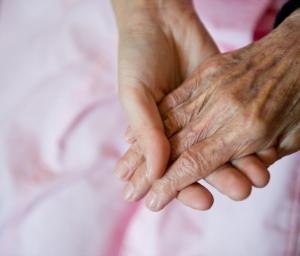Disability Awareness and the House of Lords post legislative scrutiny
Following on from my previous blog I wanted to discuss disability awareness in broader terms and not just relating to my relative.
The House of Lords report of the Equality Act 2010 said that disability should be considered from the point of view of the person living with disability, rather than the burden that it might be to an organisation. This is a fundamental shift about whose point of view is key. But there are lots of different disabilities how can any organisation understand the point of view of people with such a diverse range of needs?
I am part of the Prime Minister’s Dementia Challenge Team, am a Dementia Friend, a Dementia Champion and a Purple Angel Ambassador. As head of the Vulnerable Client Team at Nash & Co, I meet people with various disabilities on a regular basis. So what is disability awareness like for them?
As taken from the Dementia Friends Awareness session, things can be misinterpreted by someone living with dementia. So lines in a carpet could look like snakes to them and black mats at the entrance of a shop, could look like a hole. So how would anyone walk across a floor made of snakes? And what would anyone do when faced with a huge hole in front of them? The answer is that they would behave in a way that an able bodied person might not understand and to them it would look different or dare I say weird!
If someone has a visible disability, such as a wheelchair, it is easy to perceive that they might need some support in their lives. It is the invisible disabilities that warrant extra care, as the presentation may just look different and inexplicable and because of exactly that, extra care and compassion is required.
How we understand disability is not by trying to understand every single medical condition, that would be too much detail, but simply to know that if someone is behaving in an unusual way, it does not necessarily mean that they are drunk, on drugs or psychotic. I have heard a story about a man arrested and put in the police cells to sober up, as he was drunk, only to realise 8 hours later when he wasn’t “sobering up” that he had dementia!
So how does anyone deal with this situation? The first thing is don’t be scared, people with disability are still people with hopes and dreams like everyone. Talk to them, have some empathy, be compassionate towards them and any behaviour they may be displaying. Then ask them what they need. Walking them around a black mat doesn’t cost any money, often the adaptations that need are not expensive.
People with disabilities don’t want to be treated as second class citizens or patronised, they want to be treated as people and depending on their disability, they may be in jobs significantly contributing towards the economy and the services in it. Those not in work still contribute, as they allow us to demonstrate our understanding and compassion towards all, which is no small contribution, as smile from another human is always valuable.
So how do we deal with disability – with compassion and ask the person, it may just make your day and theirs!






Leave A Comment